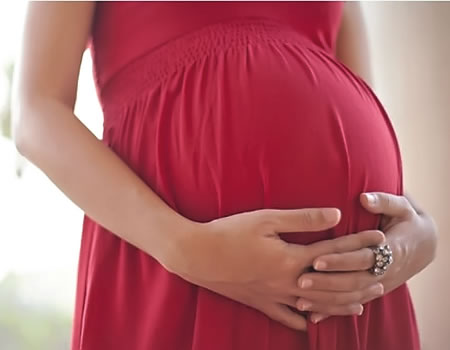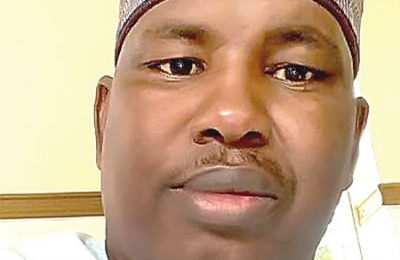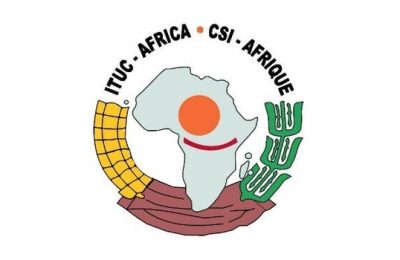
JUMOKE Amoo has a story to tell. It’s about how her sister Nike, a mother of two, died during childbirth as a result of obstructed labour, a treatable complication. Nike had stayed home in her suburb of Osogbo to deliver, as she had with her first two children, but this third time her labour did not progress.
The baby’s head was stuck. Nike needed a C-section, but she died before she could reach a hospital where there was a doctor who could perform the procedure.

Nike is one of the many women Nigeria loses to death in childbirth. In 2020, about 82,000 Nigerian women died due to pregnancy-related complications, a slight improvement from the previous year but an increase in earlier decades.
The causes of death included severe haemorrhage, high blood pressure (pre-eclampsia and eclampsia), unsafe abortion, and obstructed labour.
Professor Akintunde Odukogbe, a consultant gynaecologist at the University College Hospital (UCH), Ibadan, declared that for every woman who dies, 20 other women have disabilities from trying to create the next generation.
“What is very astonishing is that these deaths are from five major preventable illnesses or conditions, which include severe haemorrhage, hypertension, eclampsia, unsafe abortion, and obstructed labour,” he declared.
Everyone has a role to play in helping to mitigate the risks attached to pregnancy. We need to build some solutions from the ground up. Some entail women making the right choices for themselves and the baby.
Professor Emmanuel Otolorin, also a consultant gynaecologist, emphasised the place of self-care and knowledge in surviving pregnancy and childbirth in Nigeria.
His new book, entitled “How to Survive Pregnancy and Childbirth in Nigeria: A Personal Guide,” is written to provide guidelines for literate pregnant women. He chronicles guidelines for quality delivery and care for the mother and newborn after delivery, including information on options for some complications of pregnancy and childbirth.
Pregnancy is a time of choices and decisions, from physical and emotional changes in pregnancy, nutrition, preconception care, antenatal care, understanding labour and delivery, care after childbirth, to managing complications of pregnancy and birth.
Professor Otolorin declared that in low-resource settings like Nigeria, where access to medical care can be limited, self-care has become a critical factor for a healthy pregnancy and childbirth, thus the need for a woman to be empowered to take charge of her health and well-being.
“Self-care translates to knowledge. Part of this includes prioritising rest, maintaining a nutritious diet within local means, and getting moderate exercise, which can significantly improve a woman’s physical health during pregnancy. Learning relaxation techniques and breathing exercises can not only manage stress but also prepare the woman for labour.
“Ignorance thrives on superstition and myths that distract from the truth and tend to mislead the innocent pregnant woman whose interest is to have a live and healthy baby. But a pregnant woman that is knowledgeable about danger signs during pregnancy and delivery, as well as available life-saving interventions, will indeed take steps that can positively influence the outcome of her pregnancy.”
In Nigeria, pregnant women are often under tremendous pressure from a variety of stakeholders who compete for their attention, giving solicited and unsolicited advice and trying to influence their decision-making process concerning what to do or what not to do during pregnancy, labour, and childbirth.
Professor Otolorin, however, said that most advice from untrained people may be harmless, but some are indeed quite harmful and may significantly alter the course of the pregnancy and possibly the unborn baby.
“In this age, some make Google their healthcare provider. Searching online for medical advice can be dangerous and cannot replace a healthcare worker’s expertise. It can sometimes lead to misdiagnosis, ignoring critical details, creating unnecessary anxiety or worry, and even delaying treatment for serious conditions,” he stated.
Not all pregnancies are safe. Also, science cannot predict always who will experience life-threatening complications during pregnancy, labour, delivery, or even after childbirth. In reality, about 15 out of every 100 pregnant women will end their pregnancy unfavourably with life-threatening complications.
However, Professor Otolorin said it is important women also avail themselves of information on major causes of life-threatening complications of pregnancy and childbirth; the factors that increase risks for these complications and available preventive interventions can increase chances of surviving pregnancy and childbirth.
“The World Health Organisation recommends that all pregnant women should be managed by skilled birth health professionals who can handle any complications if and when they arise,” he added.
READ ALSO: Police confirm Oloba Salo hospitalised after gun attack in Lagos








